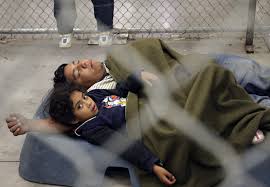
Tens of thousands of would-be immigrants are imprisoned in America’s Gulag all across the U.S. Some cannot make bail while others are being held without bail.
Many of these prisoners of our broken immigration system have committed no crime, but are being charged with being present in the U.S. unlawfully or having violated their temporary or permanent resident status. Often, their spouses and children are forced to live with relatives or to apply for welfare in order to support themselves while their loved ones remain locked up, waiting for their hearings before overworked Immigration Judges or for their appeals to be decided by either the Board of Immigration Appeals or the Federal Courts.
The Berks County Residential Center and Yuba County Jail will close at the start of 2023.
Client Reviews

A Life Changing Law Firm
“My family and I were clients of Mr. Carl Shusterman and I can honestly say that he had a tremendous impact on our lives – a very positive one. Even when my parents had been denied and they had been told to pack and get out of this country, Mr. Shusterman rushed to find an alternative in order to ensure that my parents could stay.”
- Diana Cabrera, Reno, Nevada
Read More Reviews
Zoom Consultations Available!
But, even though persons in immigration detention have less legal protections than do individuals accused of a crime (whatever their legal status), they still have some rights. We hope that this page helps you locate a family member who is in immigration detention and assists you in helping them assert their rights. We urge persons in state and local custody to take advantage of the ICE Detainee Hotline at (855) 448-6903
Here is what ICE has to say about Immigration Detention:
“ICE Enforcement and Removal Operations (ERO) manages and oversees the nation’s civil immigration detention system. ICE detainees placed in ERO custody represent virtually every country in the world, various security classifications, both genders and medical conditions ranging from healthy to terminally ill.
Non-U.S. citizens who are apprehended and determined to need custodial supervision are placed in detention facilities. Those who are released from secure custody constitute ERO’s “nondetained” docket. Every case, whether “detained” or “non-detained,” remains part of ERO’s caseload and is actively managed until it is formally closed. ERO processes and monitors detained and non-detained cases as they move through immigration court proceedings to conclusion. At that point, ERO executes the judge’s order.
Through an aggressive inspections program, ICE ensures its facilities follow ICE’s National Detention Standards (NDS). ERO’s Detention Standards Compliance Unit ensures that detainees in ICE custody reside in safe, secure and humane environments and under appropriate conditions of confinement.
The NDS were originally issued in September 2000 to facilitate consistent conditions of confinement, access to legal representation and safe and secure operations across the detention system. The standards established consistency of program operations and management expectations, accountability for compliance and a culture of professionalism.
ICE now uses Performance-Based National Detention Standards (PBNDS) that focus on results or outcomes. Each detention center must meet specified standards.
As part of the restructuring of the former INS, the Homeland Security Act of 2002 transferred the responsibilities related to the care and custody of unaccompanied alien children to the Department of Health and Human Services, Office of Refugee Resettlement. To that end, ERO developed policy and procedures regarding the appropriate case management of unaccompanied alien children in Federal custody while they wait for immigration proceedings. ERO coordinates closely with DHS partners to ensure the timely and safe transfer of unaccompanied alien children to the Office of Refugee Resettlement in accordance with both the Homeland Security Act of 2002 and the Trafficking Victims Protection Reauthorization Act of 2008.”
IMMIGRATION DETENTION – GENERAL INFORMATION
- Online Detainee Locator System
- Government’s own experts found ‘barbaric’ and ‘negligent’ conditions in ICE detention (8-16-23)
- THE GEO Group, Inc. v. Newsom, Court of Appeals, 9th Circuit (10-5-21)
- Seeking Release from Immigration Detention (9-13-19)
- Matter of M-S- AG Rules that Certain Asylum Seekers are Not Entitled to Bail (4-16-19)
- Senators Call For End to Family Detention in Letter to DHS Secretary (6-01-15)
- District Court Grants Preliminary Injunction and Class Certification in Detention Case (2-20-15)
- EOIR Memo: Docketing Practices Relating to Unaccompanied Children Cases in Light of the New Priorities (9-10-14)
- EOIR Memo: The Friend of the Court Model for Unaccompanied Minors in Immigration Proceedings (9-10-14)
- DHS Memo on Oversight of Unaccompanied Alien Children (7-30-14)
- ICE Detention Operations Manual (2011)
- Immigrant Detention Centers (2-23-10)
- DHS’s Plan to Reform U.S. Immigration Detention System a Good Start (10-6-09)
- Bill Passed to Improve Required Treatment of Detainees (10-3-08)
- Letter from Nurses Resigning from DHS’ Eloy, Arizona Detention Facility (7-11-07)
- Know the Truth About Immigrant Detention in the U.S. (MidWest Human Rights) (4-22-08)
- Immigration-Related Detention: Current Legislative Issues (1-30-08)
- Detention and Deportation Officers Field Manual (3-27-06)
- Immigration Detention and Removal: A Guide for Detainees and Their Families (October 2004)
- BICE Detention and Removal Memorandum to the Field on Implementation of DeMore v. Kim (5-15-03)
- INS Custody Regulations In response to Zadvydas vs. Davis (11-14-01)
- Detention Memo From Attorney General Ashcroft to the INS (7-19-01)
– The Court held that California Assembly Bill 32 (AB 32), which aimed to phase out all private detention facilities within the state, intruded into the realm of the federal government’s exclusive powers to detain undocumented and other removable immigrants and violated the intergovernmental immunity doctrine.
IMMIGRATION DETENTION – SUCCESS STORY
SUPREME COURT OPINIONS AND DECISIONS
- Clark v. Martinez – Supreme Court Rules that ICE Cannot Imprison Inadmissible Aliens Indefinitely (1-13-05)
- Rasul v. Bush – Supreme Court Opinion On Guantanamo Detainees (6-28-04)
- Zavala v. Ridge (March 2004)
- Demore v. Kim – Supreme Court on Mandatory Detention of Criminal Aliens (4-29-03)
- Zadvydas v. Davis – Supreme Court Bars INS From Holding Deportees In Indefinite Detention (6-28-01)
